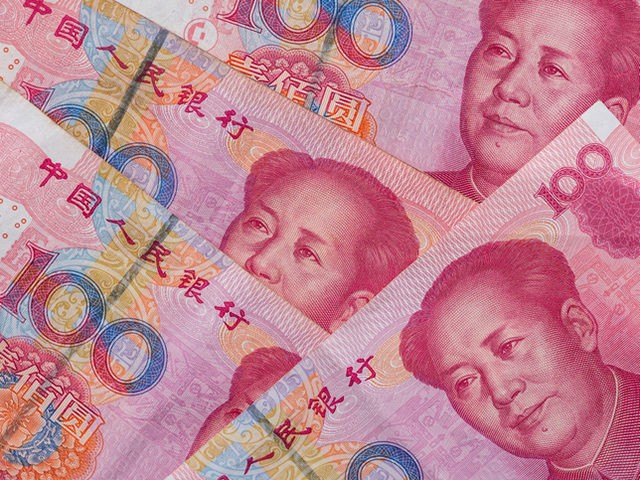Chinese state media on Thursday called on the Western world to help African nations pay their enormous debts, many of which just happen to be owed to Chinese banks thanks to China’s debt-trap Belt and Road Initiative (BRI).
China’s state-run Global Times cited Zambia’s inability to make loan payments to the China Development Bank (CDB) as a warning bell for African financial collapse unless the Western world forgets about its own economic difficulties from the Chinese coronavirus, shakes off its “protectionism and populism,” and starts forgiving African debt.
The editorial chided American and European officials for worrying that if they pump more money into Africa, it will just end up in Chinese banks:
For Western countries, the pandemic has led to shrinking funds and capabilities for foreign aid. The impact of the pandemic this year has hit global trade and investment with unprecedented speed and scale, exposing the fragility of modern supply chains. Unemployment rates in developed countries are rising, and income inequality is also increasing. In response to the ever-increasing problems, politicians often do not confront the problem directly and seek solutions, but adopt a nationalist approach, divert public anger, cut foreign aid funds, and concentrate resources on domestic priorities at the expense of support for the less developed countries.
The most serious consequence of the rise of protectionism and populism in developed countries is its destruction to the existing multilateral system. Reflected in the field of international aid, mistrust among creditors has further increased.
While China is actively promoting the implementation of the G20 “debt relief initiative,” Western countries are beginning to worry that their debt forgiveness to African countries will be used to repay Chinese loans. Although this worry is absurd, it directly reflects how bleak the prospects for international coordination in the future are.
Zambia may yet become the first African nation to default on its debts. The Zambian government announced it would suspend payments to external commercial creditors on October 13, citing cash-flow problems exacerbated by the coronavirus pandemic. A deal was struck this week to defer a final decision until November 13.
The reason Chinese state media is so agitated about the situation is that Zambia’s bondholders said they want to know more about the money Zambia owes to China before they decide how to proceed.
Patrick Curran, senior economist at the Tellimber consulting firm, told CNBC on Monday that Zambia’s huge budget deficit since 2015 was “driven mainly by a massive pipeline of Chinese-backed infrastructure projects,” exacerbated by the “excessively lax fiscal policy” of President Edgar Lungu.
Curran warned that Lungu’s administration has “squandered” its credibility with the International Monetary Fund (IMF) and commercial creditors, especially since it will not come clean about how much money it owes to China, or how those debts are structured.
“The informational asymmetry between creditors — with Eurobond holders in the dark surrounding the extent of indebtedness to China, including the structure and negotiations progress with Beijing — remains a sticky point,” explained NKC African Economics senior financial economist Irmgard Erasmus.
Curran bluntly issued precisely the warning that China’s Global Times urged creditors to ignore — that any savings Zambia realizes from restructuring its European debt will “simply be funneled to Chinese creditors.”
He also pointed out that Angola, Ethiopia, Kenya, Sudan, and Nigeria have also gone deeply into debt with China to finance infrastructure projects, giving China leverage to control their governments and influence state financial decisions by offering or withholding debt relief.
China Africa Project co-founder Eric Olander warned on Thursday that secretive Chinese debts will make other government and private lenders even more reluctant to invest in African nations, loan them money, or restructure their debts. Properly assessing financial risk is impossible when African governments refuse to be completely transparent about their debts to China, so other investors and lenders are likely to assume the worst, increasing the “risk premiums” for African borrowers.
“Without access to capital, the liquidity crisis in Africa worsens, contributing to inflation that pushes up prices and eats away at what’s left of consumers’ disposable income,” Olander said.
China aggressively pushed expensive Belt and Road projects on Zambia throughout Lungu’s presidency, claiming they would provide fantastic benefits to the Zambian people and dismissing concerns about mounting debt.
Warnings about China’s “debt trap diplomacy,” the tendency of Chinese firms to muscle local competitors out of Belt and Road contracts, and the loss of vital state assets to satisfy Chinese creditors were largely ignored.

COMMENTS
Please let us know if you're having issues with commenting.